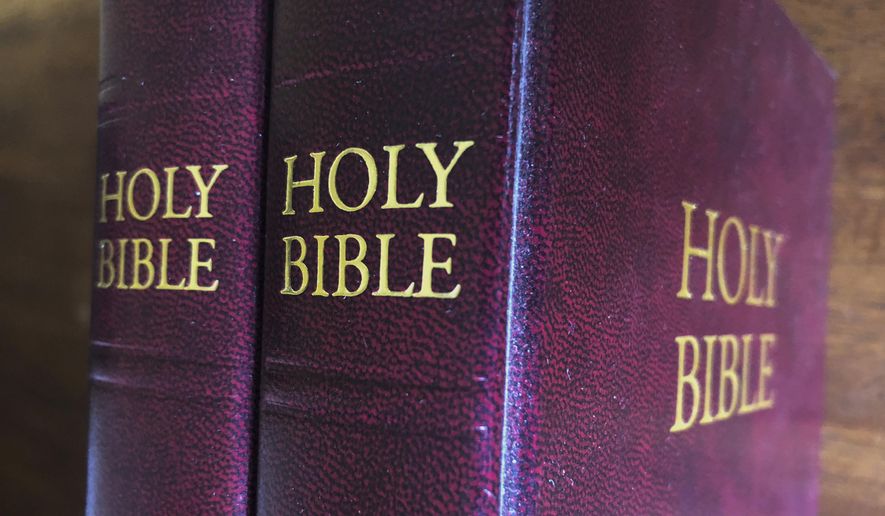Three evangelical Christian law school students this week filed a federal lawsuit against the University of Idaho, saying the school barred them from speaking to another law student “because of the religious content and viewpoint of their speech.”
The three students — Peter Perlot, Mark Miller and Ryan Alexander — are members of the university’s Christian Legal Society (CLS) chapter and are represented by the conservative Christian advocacy group Alliance Defending Freedom (ADF).
Their lawsuit, filed in U.S. District Court in Moscow, Idaho, claims they were among a group of CLS members who attended an April 1 “moment of community” to demonstrate solidarity after a homophobic incident at another campus.
The unidentified law school student asked them why their CLS chapter requires its officers affirm the belief that marriage is limited to one man and one woman. Mr. Miller “respectfully explained that the chapter requires this because it is the only view of marriage and sexuality affirmed in the Bible,” the ADF said in a statement.
Mr. Perlot later left a handwritten note for the student saying he would happily explain the position and would listen to the student’s viewpoint.
Mr. Alexander attended a panel discussion with the American Bar Association, where the CLS was “denounced,” and he asserted that the characterization of the Christian group was “inaccurate,” according to the lawsuit.
The university’s Argonaut newspaper reported that the unidentified student complained about CLS members, saying they “had told her to go to hell.”
The CLS members deny that, ADF legal counsel Michael Ross told The Washington Times.
“When someone comes up and just asks you what you believe and you tell them, these universities should be promoting that type of discussion,” Mr. Ross said. “Historically, that’s what they’ve done.”
Three days after the ABA panel discussion, the university’s Office of Civil Rights and Investigations sent the “no-contact” orders to the three students, who say they had no notice of the measure and were not given an opportunity to defend themselves before the administrative action was taken, the ADF said.
The complaining law school student alleged the three violated the anti-sexual harassment provisions of Title IX, the federal ban on sexual discrimination in education.
University documents filed with the lawsuit state that the unnamed law student was also given a “no-contact” order barring her from interactions with the three CLS members. The school said any student who violates a “no-contact” order can be suspended or expelled.
“A no-contact order is an administrative action, not a punitive action. Therefore, there is nothing for a respondent to reply to,” a university spokeswoman said via email.
• Mark A. Kellner can be reached at mkellner@washingtontimes.com.




Please read our comment policy before commenting.